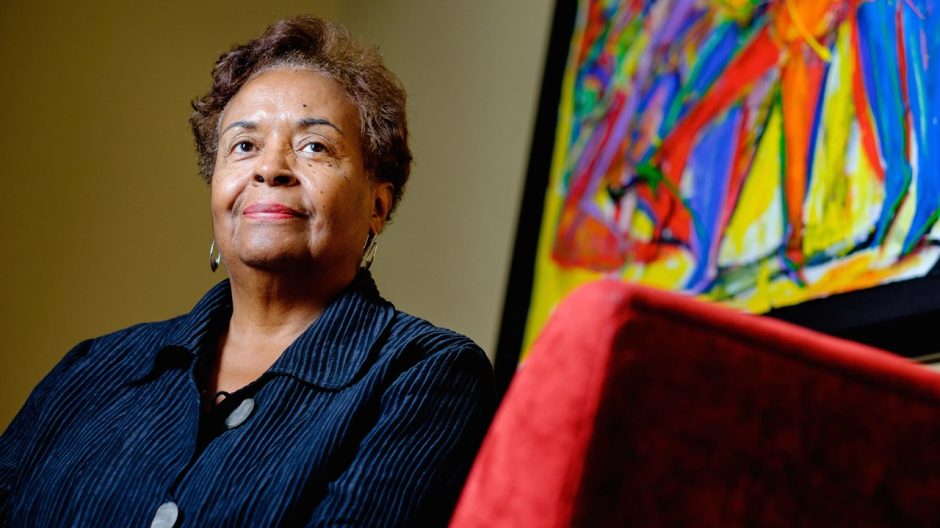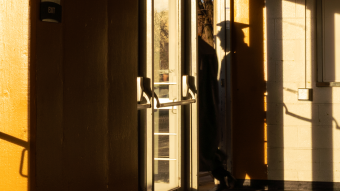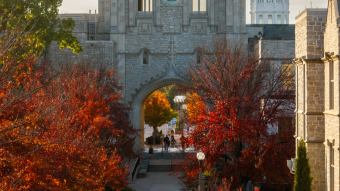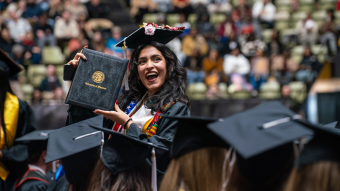
Jan. 12, 2024
Contact: Eric Stann, 573-882-3346, StannE@missouri.edu
On a bright summer day in Washington D.C., Joyce Ladner, 19, climbed onto scaffolding that supported a stage. Looking out, Ladner was mesmerized by a sea of faces — a quarter-million of them. Sharing the platform with her were some of the most influential members of the Civil Rights Movement, including John Lewis, the president of the Student Nonviolent Coordinating Committee; A. Phillip Randolph, leader of the Brotherhood of Sleeping Car Porters; and, of course, the Rev. Martin Luther King Jr.
It was Aug. 28, 1963, the day of the March on Washington.
For Ladner, a march organizer and civil rights leader, seeing King was a relatively regular occurrence. He had previously visited her college campus to speak, and, during preparations for the march, he would often poke his head around the door of the volunteers’ office to offer his gratitude.
As Ladner listened to the speeches that day, including the legendary “I Have a Dream” delivery, she was captivated by a collection of voices and wisdom that would shape her life as a scholar, professor and advocate for social justice and equality. Now 80, Ladner will deliver her own address at the University of Missouri on Jan. 24, 2024, to commemorate King and the legacy of the movement upon which she has centered her life.
Itching for justice
Born in Hattiesburg, Mississippi, as the third of nine siblings, Ladner excelled at school. After graduating from high school at the age of 16, she enrolled in Jackson State University. There, in organizing and attending a sit-in designed to protest racial segregation, Ladner came face to face with the consequences of using her voice: She was expelled for organizing a protest and associating with Medgar Evers, one of Ladner’s early mentors and the first field secretary for the NAACP in Mississippi. At the time, Ladner was 17.
But Ladner had no intention of allowing such an obstacle to interfere with her education. Later that year, she enrolled in Tougaloo College, which was just a few miles down the road.
“Tougaloo is a liberal arts college, and I studied under the influence of my mentor, Ernst Baranski, who was a Holocaust survivor,” Ladner said. “At the time, many Holocaust survivors could not get jobs at the majority of institutions, so they came to the South to teach. He was one of those people and had a profound effect on my life, especially on my decision to study sociology.”
After graduating from Tougaloo, Ladner spent the summer of 1963 volunteering as an organizer for the March on Washington — an experience that irrevocably shaped her perspective. The next year, she moved to St. Louis to pursue a doctoral degree in sociology at Washington University in St. Louis.
Upon graduating, she followed her curiosity to Tanzania to foster her global perspective and study the roles of women in nation building. A year later, upon her return to the United States, Ladner took a position at Howard University. For the next 14 years, she would serve in multiple capacities, including associate professor, provost and president.
Throughout her career, Ladner made a name for herself. Shortly after her retirement from academia, she was recruited to work for President Bill Clinton. Now, she shares the wisdom of her story, encouraging generations to come to advocate for themselves.
A dream, indeed
Community involvement was in Ladner’s blood — something she recognized early on from the lessons and wisdom of her mother.
“My mother was a very strong woman, and she taught us to believe that we were as good as anyone else,” Ladner said. “We grew up with a sense of pride in who we were. My mother would often say, ‘If you can't stand up for your beliefs, they must not be very important.’”
That legacy lives on in Ladner as she encourages young people to explore the world with the ferocity of unabridged curiosity and to strive to understand their place in the broader landscape of their time. As she reflects on her life, Ladner hopes that future generations recognize their responsibility to be good citizens and stand up for the least among us.
During her address at Mizzou, Ladner will speak on the theme “Women and the Civil Rights Movement,” sharing lessons from her past and honoring the contributions of women advocates and leaders within movements for social justice.
“I feel tremendous gratitude that I was born at a time, during World War II, and in a place, Mississippi, that was the epicenter of a lot of what was wrong with American society,” Ladner said. “I’m grateful to have had mentors who, despite racial segregation and discrimination, taught me about freedom and how to gain my freedom.”
Story written by Courtney Perrett



